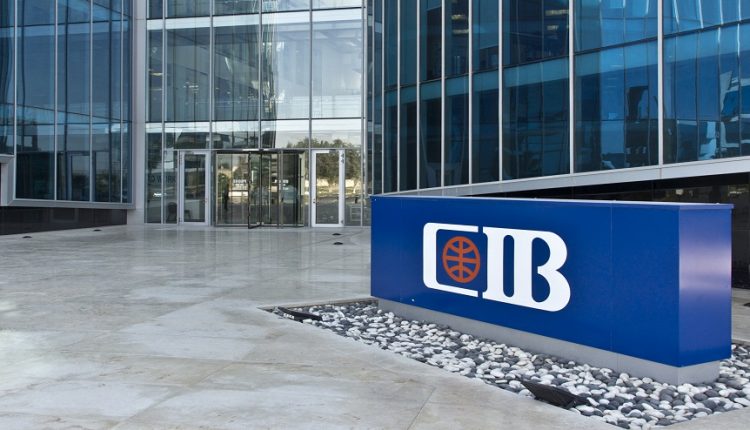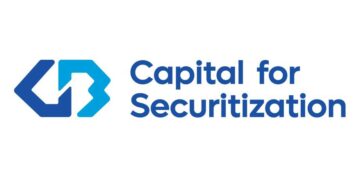Fitch Downgrades Commercial International Bank-Egypt «CIB» To B- Outlook Stable
Font size
Fitch Ratings has downgraded Commercial International Bank (Egypt) S.A.E. (CIB) ‘s Long-Term Issuer Default Rating (IDR) to ‘B-‘ from ‘B’ and its Viability Rating (VR) to ‘b-‘ from ‘b’. Fitch has also downgraded CIB’s Government Support Rating (GSR) to ‘no support’ from ‘b-‘. The Outlook on the IDR is Stable
The rating downgrades follow the downgrade of Egypt’s sovereign rating on 3 November 2023 (see Fitch Downgrades Egypt to ‘B-‘; Outlook Stable at www.fitchratings.com) and reflect the strong linkage between the sovereign’s and CIB’s credit profiles. The Stable Outlook on CIB’s rating reflects that on the Egyptian sovereign rating, which caps the bank’s ratings at their current levels.
The downgrade of Egypt’s sovereign rating reflects increased risks to the country’s external financing, macro-economic stability and the trajectory of already-high government debt. Downward pressures on the currency have increased, and the path to policy adjustment has become more complicated, in Fitch’s view.
Fitch has revised down the operating environment score for Egyptian banks to ‘b-‘/stable from ‘b’/negative, in line with the sovereign rating action as operating conditions for banks are closely linked with the sovereign profile. It considers tight external liquidity, high core inflation (40% in September 2023) and much weaker business conditions in the non-oil sector.
KEY RATING DRIVERS
CIB’s IDRs are driven by its standalone creditworthiness, as expressed by its VR of ‘b-‘. The VR reflects the bank’s significant exposure to the Egyptian sovereign through holdings of government securities (25% of total assets at end-3Q23), balances at the Central Bank of Egypt (CBE; 28%), and sizable lending to public-sector companies, in addition to high concentration and market risks, and limited external foreign-currency (FC) liquidity. Rating strengths are its solid franchise, strong profitability through the cycle, resilient loan quality, adequate capitalisation and stable funding.
Weaker Operating Conditions: Economic conditions for Egyptian banks should remain weak given high inflation, rising input costs, geopolitical uncertainties and lingering pressures on the currency. The banking sector recorded a high net foreign liability position of USD16.4 billion at end-3Q23, reflecting tight FC liquidity.
Solid Franchise: CIB is Egypt’s third-largest bank in Egypt and largest private bank, with a 6% share of banking system assets at end-1H23. CIB has a strong revenue-generating franchise that is mainly corporate-focused, but also has a solid retail division serving over two million customers.
High Concentration, Market Risks: Total sovereign exposure (mainly in Egyptian pounds) was equal to around 7x the bank’s common equity Tier 1 (CET1) capital at end-2022. Single-name borrower concentration is also high, with the 20 largest loans equivalent to 2.2x CET1 capital at end-2022.
Market risk is high due to securities held at fair value through other comprehensive income (FVOCI), and equal to 27% of total assets at end-3Q23 (3.5x CET1 capital), making CIB’s capital ratios sensitive to rising rates (due to mark-to-market unrealised losses).
Resilient Loan Quality: Loans averaged at 30% of total assets over 2019-3Q23 (sector average: 36%). CIB’s loan quality has generally held up well through economic downturns, reflecting its focus on high-quality borrowers and conservative underwriting. At end-3Q23, the Stage 3 loans ratio increased slightly to 5.1% (end-2022: 4.9%), but total loan loss reserves coverage of Stage 3 loans is solid (end-3Q23: 243%).
Strong Profitability: CIB’s profitability is a rating strength as reflected in some of the highest profitability metrics among rated Egyptian banks’. Its operating profit/risk-weighted assets (RWAs) increased to a high 9.9% (annualised) in 9M23 (2022: 7.2%; domestic peer average: 6%), driven mainly by a wider net interest margin (NIM) of 7.6% (annualised) versus 6.3% in 2022 and a peer average of 5.4%. The wider NIM was driven by interest rate hikes and soaring sovereign debt yields (+1,300bp).
CIB’s profitability and NIM benefit from low-cost current and saving accounts (CASA) representing 53% of total deposits (peer average: 41%).
Adequate Capitalisation: CIB’s CET1 ratio has declined sharply to 12.6% at end-3Q23 from 15.4% at end-2022 and 23.1% at end-2021, due to unrealised losses on securities at FVOCI (equal to 43% of end-2021 CET1 capital). This was a result of rising interest rates and the 50% Egyptian pound depreciation, which inflated FC RWAs. Nevertheless, it remains above the sector average of 10.6% and the 7.25% regulatory minimum (including buffers).
CIB’s strong internal capital generation and solid provisioning buffers also support capitalisation, while other comprehensive income (OCI) losses would be reversed by securities being held till maturity.
Stable Funding, Limited External Liquidity: CIB has a favourable funding mix, with retail deposits accounting for 54% of total deposits at end-3Q23. Like its domestic peers, CIB is exposed to tighter FC liquidity in Egypt as 34% of its liabilities at end-3Q23 were in FC and its external liquidity is limited with net foreign liabilities equivalent to 1.3% of total assets.
RATING SENSITIVITIES
Factors that Could, Individually or Collectively, Lead to Negative Rating Action/Downgrade
A downgrade of Egypt’s sovereign ratings would lead to a downgrade of the bank’s ratings, given its very high sovereign exposure. A sharp deterioration in operating conditions affecting asset quality and, consequently, profitability and capitalisation, or intensification of pressures on FC liquidity, could also lead to rating downgrade.
Factors that Could, Individually or Collectively, Lead to Positive Rating Action/Upgrade
An upgrade of CIB’s ratings would require an upgrade of Egypt’s sovereign ratings.
CIB’s GSR of ‘no support’ reflects the sovereign’s weak ability to provide support to the bank in FC given its weakened and vulnerable external positions. This considers the sovereign’s large gross external financing requirements, which we expect to reach 91% of FC reserves in 2024, and the banking sector’s large net foreign liability position representing almost 50% of FC reserves.
An upgrade to the GSR will require an upgrade of the sovereign rating and an improvement of Egypt’s ability to support its banks.
VR ADJUSTMENTS
The business profile score of ‘b-‘ is below the ‘bb’ category implied score, due to the following adjustment reason: business model (negative).
The earnings & profitability score of ‘b’ is below the ‘bb’ category implied score due to the following adjustment reason: revenue diversification (negative).
The funding and liquidity score of ‘b-‘ is below the ‘bb’ category implied score, due to the following adjustment reason: deposit structure (negative).
REFERENCES FOR SUBSTANTIALLY MATERIAL SOURCE CITED AS KEY DRIVER OF RATING
The principal sources of information used in the analysis are described in the Applicable Criteria.
ESG CONSIDERATIONS
Unless otherwise disclosed in this section, the highest level of ESG credit relevance is a score of ‘3’. This means ESG issues are credit neutral or have only a minimal credit impact on CIB, either due to their nature or the way in which they are being managed by CIB. Fitch’s ESG Relevance Scores are not inputs in the rating process; they are an observation of the materiality and relevance of ESG factors in the rating decision













